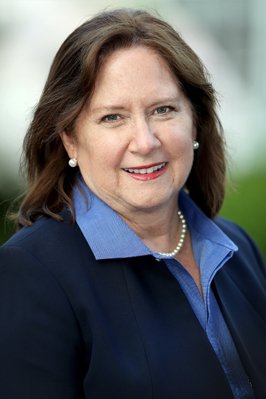Reflections on ‘Lead Well: Equity and Excellence’
From the ACSA President, Linda Kaminski
December 9, 2019

Lead
Each of us has chosen a path in education that calls upon our ability to inspire, motivate, engage with other educators, and advocate for education. As leaders we must be informed, knowledgeable, and continuously improving in enacting our role. As leaders, we must both celebrate the successes of our students and staff and, at the same time, recognize and address areas of growth. We all know the sense of pride we share when we see the good news — students and teachers engaged in outstanding lessons, students pursuing their dreams and achieving their goals, and schools honored with well-deserved recognitions.
We also all share concern about challenges we encounter and the difficulties in overcoming these challenges. And as leaders, we must raise our voice, we must advocate for the students, teachers and families we serve. Our leadership is two-sided. Our role requires us to support our fellow educators, students and families as we navigate through both the celebratory and the concerning.
Well
Wellness is based on the recognition that we are all human. Each of us, educators and students, share social-emotional needs for safety, support, purpose, fulfillment and recognition.
As leaders, we focus daily on both the academic and well-being needs of our staff, students and families. Sometimes we do this at the expense of our own wellness needs. As leaders, we recognize our responsibility to support the well-being of those with whom we work. Each of us must also take the time to support our own well-being.
Equity
We would not have entered the field of education if we did not recognize the need to uplift students. Many of us may have initially thought about equity in terms of an individual student — perhaps he or she is facing challenges at home, poverty, learning English, or a disability. We may have focused on meeting the needs of that student — of creating greater equity for that student. Supporting individual students is necessary, but as leaders, we must recognize the need to support all student groups, particularly groups that have a long history of unmet needs and inequitable education.
This past September when I was at the NASS Legislative Advocacy conference, I had the opportunity to speak with former Department of Education Secretary Dr. Rod Paige. During his time in office, No Child Left Behind became the accountability system for schools and districts throughout the nation. There were a number of legitimate concerns about that accountability system, including the singular focus on test scores. However, I thanked Dr. Page for his leadership in ensuring that test results were disaggregated by economic, racial/ethnic, English Learner, disability and other indicators. As leaders, we became aware of not only average achievement, but achievement among specific groups. We saw significant achievement gaps and we increased our focus on closing these gaps and re-imagining education to dismantle inequities within our schools and districts. Our ongoing commitment to this work — to ensure equity both for the individual and the group — is vital to our role as leaders, to the future of public education, and to the strength of our society.
Excellence
As I entered high school, I remember fearing the academic rigors I would face as a freshman. Fortunately, my eighth grade teacher had exceptionally high expectations for us, and I was well prepared for everything, except remembering my locker combination. The lesson I learned from my eighth grade teacher was the value of high expectations, preparation and support. Now, high expectations are the norm with the Common Core State Standards, Next Generation Science Standards, and higher expectations for learning across the whole curriculum. These higher expectations cannot be achieved, however, without the support of teaching and learning strategies that actively engage students as learners and discoverers of knowledge. When we see excellent teaching enacted, we rightfully celebrate the commitment of staff and the success of students in achieving excellence. These successes dispel old notions of what students and student groups can or cannot learn, and open the door to the future of educational excellence for all students.
I hope each of you who attended our Leadership Summit found sessions that confirmed your strengths, guided your next steps, and inspired positive action in your leadership. Thank you for your participation and commitment to “Lead Well: Equity and Excellence.”

